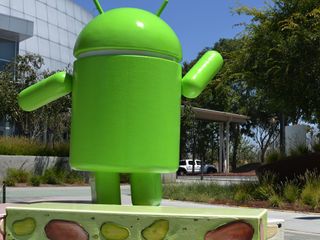Google crushes EU regulator's antitrust arguments against Android

Google is hitting back against European Commission claims that by bundling all of its apps and services with most Android phones, Google is exhibiting antitrust tendencies.
On its blog today, Google's SVP and General Counsel, Kent Walker, penned a four-step rebuttal, claiming that not only is Android competitive in Europe, but it has made the market more so since its release in 2008. Says Walker:
Android means manufacturers don't have to buy or build expensive mobile operating systems. As a result, smartphones are now available at dramatically lower prices — as little as 45 euros — and have become much more accessible to many more people. Today, more than 24,000 devices from over 1,300 brands run on Android. And European developers are able to distribute their apps to over a billion people around the world. Android is not a 'one way street'; it's a multi-lane highway of choice.
Specifically, he points to the success of the iPhone and iOS as a primary reason Google and Android should be cleared of any wrongdoing, saying that despite claims to the contrary Apple considers Android its primary competition in the mobile space.
He points to the success of the iPhone and iOS as a primary reason Android should be cleared of any wrongdoing.
He also points out that Google has to constantly balance the openness of Android as a platform with its promise to developers in maintaining a hearty and healthy marketplace for apps, which the European Commission accuses of being too Google-centric and controlled.
We give phone makers wide latitude to build devices that go above that baseline, which is why you see such a varied universe of Android devices. That's the key: our voluntary compatibility agreements enable variety while giving developers confidence to create apps that run seamlessly across thousands of different phones and tablets. This balance stimulates competition between Android devices as well as between Android and Apple's iPhone.
Walker also disputes that claim that Google preloads too many of its own apps, saying that its app licensing agreement with hardware manufacturers is much more flexible than, say, Microsoft's. Apple, too, loads a number of its own apps on the iPhone and iPad, and encourages users to download its own productivity suite like Pages and Numbers the first time they open the App Store.
He also brings up an important point: Google is able to offer its entire software suite for free to phone makers because of the process of bundling:
Distributing products like Google Search together with Google Play permits us to offer our entire suite for free — as opposed to, for example, charging upfront licensing fees. This free distribution is an efficient solution for everyone — it lowers prices for phone makers and consumers, while still letting us sustain our substantial investment in Android and Play.
The blog post was written in tandem with a filing handed over to the European Commission in response to charges of antitrust and monopolistic behavior. Now, the EC must go back and review the filing and choose whether it wants to pursue fines, which could amount to $7.5 billion, or drop the charges altogether.
Be an expert in 5 minutes
Get the latest news from Android Central, your trusted companion in the world of Android
Daniel Bader was a former Android Central Editor-in-Chief and Executive Editor for iMore and Windows Central.

